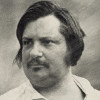“ Whatever part of his stock a man employs as a capital, he always expects it to be replaced to him with a profit. ”
Adam Smith, The Wealth of Nations (1776). copy citation
| Author | Adam Smith |
|---|---|
| Source | The Wealth of Nations |
| Topic | profit capital |
| Date | 1776 |
| Language | English |
| Reference | An Inquiry into the Nature and Causes of the Wealth of Nations |
| Note | |
| Weblink | http://www.gutenberg.org/files/3300/3300-h/3300-h.htm |
Context
“It pays the wages of productive labour only. That which is immediately destined for constituting a revenue, either as profit or as rent, may maintain indifferently either productive or unproductive hands.
Whatever part of his stock a man employs as a capital, he always expects it to be replaced to him with a profit. He employs it, therefore, in maintaining productive hands only; and after having served in the function of a capital to him, it constitutes a revenue to them. Whenever he employs any part of it in maintaining unproductive hands of any kind, that part is from that moment withdrawn from his capital, and placed in his stock reserved for immediate consumption.”
source


